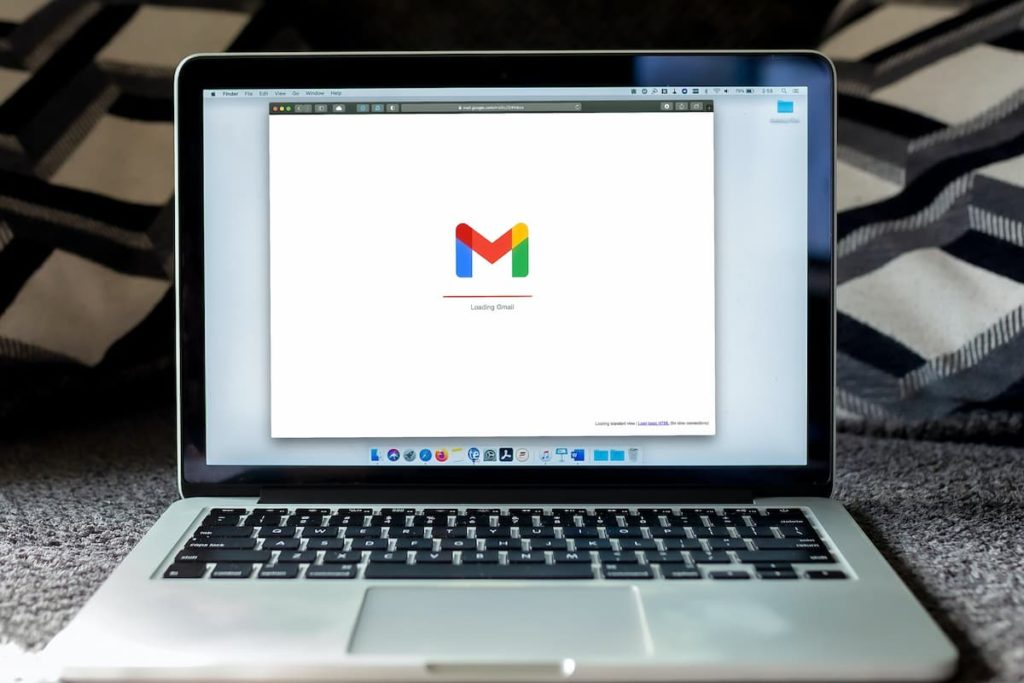Choosing Between a Marketing Agency, a Digital Marketing Freelancer and an In House Marketer

Typically, as a business owner, when it comes to marketing you usually have three options. The first is to hire a marketing agency, the second is to hire a marketer and the third option, which I think is rarely considered, is to hire a freelancer or even multiple freelancers.
In this blog, I’m going to cover the benefits of each option, when it’s best to use each one and some potential drawbacks so that you can leave this page with a bit more of an understanding as to which option suits your business best, at your current stage.
Before we go any further I’m sure you’re thinking, ‘Well Chay, you’re a freelancer so aren’t you going to be a bit biassed and say freelancers are the best for every option’. While I am a freelancer I have spent many years working at marketing agencies and I know the results they can produce, making them a great investment for your business. I haven’t got any experience working in-house for a company but I do believe that in-house marketers add tremendous value and sometimes have a more challenging job than freelancers or people working agency side.
The aim of this post is to help business owners make the best decision for them, not to bad mouth anyone. I always want to see the role of marketing be seen positively and I believe that by choosing the right option everyone can succeed.
So let's jump in and take a look at the pros and cons of all three options.
Opting For A Marketing Agency
Marketing agencies, especially full-service agencies, offer a full range of services from market research, design, and website development to digital marketing and more. Some agencies choose to specialise in certain disciplines such as design, digital marketing or PR and some choose to specialise in certain industries such as hospitality, SaaS or B2B.

Pros of choosing an agency
There are several benefits to choosing an agency over a freelancer or hiring an internal marketer.
- Full service: Typically agencies will offer a range of services so if you need regular design work as well as ongoing digital marketing campaigns, website support and PR then an agency can be a great choice for you. Another benefit is that you’ll have a single point of contact for all of your marketing needs.
- Access to best-in-class tools: Agencies tend to have several clients that all require the same services which allows them to invest in the best-in-class tools. These tools might not be affordable if you have to pay for them yourself as a business, or as a freelancer.
- Access to experts across all marketing disciplines: Marketing agencies will employ people as experts in certain marketing disciplines. For example, they will have someone who specialises in SEO, PPC, design and website development. This gives you access to a range of experts at a cheaper cost than if you employed these people in-house.
Cons of choosing an agency
While there are lots of advantages to using an agency there are also some drawbacks, these include:
- Cost: Agencies typically tend to be more expensive per hour than hiring someone in-house or using a freelancer.
- Knowing who you’re working with: When choosing an agency you typically have an account manager who you communicate with and then there’s a team behind the scenes doing all of the work. Everyone has to start their marketing career somewhere and most people start at an agency. This means there could be several junior team members looking after your account which in itself isn’t a problem but without oversight from a senior staff member, you could be paying a lot and not quite getting the level of service you deserve.
Opting For A Marketing Freelancer
Marketing freelancers typically offer a few different services but not as many as an agency would. Freelancers are therefore highly skilled in the services they provide and with fewer overheads, often have cheaper rates than an agency or an in-house marketer.
Pros of using a marketing freelancer
There are many benefits to using a freelancer over an agency or hiring someone in-house, let's take a look!
- Experts: Freelancers tend to be experts in one or two services, for example, search marketing, social media, design or email marketing. This means that you’re going to have someone who knows what they’re doing and has plenty of experience.
- Knowing who you’re working with: When you’re working with a freelancer you know exactly who you're working with. There isn’t a team behind the scenes doing the work, it’s the person you’re regularly in contact with.
- Cost-effective: Freelancers are typically much cheaper than using an agency meaning you can either save some money or get more for your money, usually it ends up being a bit of both.
- They love what they do: There are many reasons people choose to freelance but having worked with a whole range of freelancers there is one common theme, they’re all passionate about what they do and they live and breathe their job. Some people, whether in-house or agency just see it as a job whereas with freelancers it’s their passion.
- Commitment: When you work with a freelancer they are typically more committed to helping you and achieving great results than someone in-house or an agency. When working with a freelancer, their income relies directly on keeping you, the client, happy.
Cons of using a marketing freelancer
While freelancers can be a great addition to support your marketing efforts there are a few cons which mean it might not work for you:
- Scalability: Freelancers only tend to have so much capacity and this means if you need to double or triple your marketing output they may not have the capacity to take this on. However, they usually know some people in their network who can take on additional work.
Opting For An In-House Marketer
Choosing to hire someone in-house can make a great addition to your team and really supercharge your marketing efforts however as with the options we’ve already explored there are both pros and cons to this. Let's start with the pros!
Pros of hiring an in-house marketer
There are benefits to having your own in-house marketer or even growing this into a marketing team. Some of these benefits include:
- More time: An in-house marketer works for your business full-time time which means you get roughly 35 hours per week spent on your marketing.
- In-Depth Knowledge: Typically in-house marketers will have greater knowledge of your products as well as your audience and the business as a whole. This means that when it comes to things such as writing content or designing ad creative they are far more likely to get it right the first time.
Cons of hiring an in-house marketer
As with everything we’ve explored there are always cons to each option, for hiring an in-house marketer these include:
- They need to be managed: an in-house team member will need to be managed far more closely than an external agency or a freelancer. With external options, if things aren’t working out you can easily terminate the contract, with an in-house marketer this is more challenging
- Skills and experience: your in-house marketer will need to work on every channel, for example, social media, paid ads and design. This typically means that they have a general understanding of all the disciplines but they don’t have the luxury of becoming an expert in every channel. This means at some point they will extract the maximum they can from each channel.
- Additional costs and overheads: When working with an agency or a freelancer you’re paying a fixed fee every month and while their prices do occasionally rise it’s easy enough to budget for. When you have an in-house marketer you need to consider things such as pension contributions, training, perks and yearly wage reviews.
- Flexibility: When working with a freelancer or an agency you typically have a notice period of anywhere between 30 days and 3 months, so if things aren’t working out either performance or relationship-wise, you can both go your separate ways. You can also scale up and down quite easily with an agency or a freelancer so if you have busy and quiet periods they can cater to this. With an in-house employee, you don’t have this flexibility.
When To Choose Each Option
Knowing what we know now about each of the different options out there let's take a look at when each option is best, depending on the stage your business is at.
Agencies
I would recommend choosing a marketing agency if:
- You’re a small business and you need a range of marketing services and you don’t have the time to manage multiple freelancers.
- You’re operating in a very specific sector with lots of specialist considerations, such as the legal or medical sector, where having a team with a deep understanding of what you can and can’t do is important.
- You’re a large business and require complex campaigns which require multiple disciplines to work together.
Freelancer
I would recommend choosing a freelance if:
- You’re a small business or start-up and you don’t have the budgets for a marketing agency.
- You’re a small business and you have a one-off project, such as a new website or a digital marketing campaign.
- You have an in-house, all-round marketing team, but need some specialist advice to plug a skills gap. For example, your in-house team manages the website and creates content but they need specialist support in certain areas such as SEO or PPC.
- You’re a marketing agency that specialises in one thing but a client has a particular service they’re looking for. For example, you’re a website design and development agency but you need some SEO support on a website migration project.
- You’re a marketing agency and one of your team members is moving on to a new role so you have a gap to fill. Using a freelancer gives you time to find the right candidate for the role.
In House
Having an in-house marketer is usually the realm of bigger businesses that can afford to employ someone full-time and are also able to keep that person busy. I would recommend hiring someone in-house if:
- You have enough marketing work for a full-time employee.
- Your agency bill is starting to look like the equivalent of a full-time salary. The only caveat here is that an in-house marketer typically needs to be a generalist who can do everything whereas an agency will have someone who specialises in each service they offer which usually translates into better performance.
- A lot of your marketing and therefore leads come from organic social media. Organic social media either needs a specialist agency that you really trust or someone in-house who knows your business inside out. This is because the best organic social requires a two-way conversation, otherwise, you’re just paying an agency lots of money to write a few social posts.
- You attend a lot of events and exhibitions which requires a team to set up, attend and follow up with attendees.
The Hybrid Approach
As you can see and have probably experienced, there are pros and cons to each option out there and this is where the hybrid approach comes in and I feel offers the best of everything. Using a hybrid approach you get the best of all three options, you get the scalability of an agency, the expertise of a freelancer and the time from an in-house employee.
The hybrid approach also works with just two of the three options. For example, an agency and an in-house marketer can achieve more than just one or the other. The in-house marketer has the agency to lean on while being able to do the bulk of the work. The same is true for a freelancer and an in-house marketer, where the freelancer offers specialist advice and support in an area where the in-house team might be struggling but once upskilled can take on more of the work.
This also works for an agency and a freelancer. Normally this would be seen as a competition between the two but in reality, the freelancer supports the agency who are then able to produce their best work and drive the best results for the business.
Knowing When To Pivot
As a business, things are constantly changing, as you grow and your team expands you might choose to take more of your marketing in-house with the support of a freelancer. Or if budgets change you might no longer be able to afford a full-time member of staff and need the support of an agency or freelancer.
Knowing when to pivot from one option to the next is always a challenge and difficult to get right.
Wrapping Up
As you can see, each option has its pros and cons and as your business changes so does what works best in terms of your marketing. There will also never be one right answer, you might be a bigger business but prefer to work with a team of freelancers, you might be a small start-up but want to use an agency and that’s ok!
What would be great to see more of is companies as well as agencies using freelancers to fill skill gaps within their teams. Whether that's an in-house team using a freelancer to take them to that next level or an agency wanting the best for their clients and using a specialist when it’s not a skill they have in-house, rather than just bodging the job. This improves outcomes for everyone, the agency does a better job and looks better in front of the client, the in-house team performs better and the boss sees an increase in leads and the freelancer gets to do what they do best and what they love to do.
I know that there are probably a lot of business owners out there who have been burned by agencies, freelancers and in-house marketers but by writing this I hope I can help achieve better outcomes for everyone.

Similar Posts

Mastering Email Marketing: Top Optimization Tricks for Maximum Impact

Harnessing the Power of Micro-Influencers in Niche Markets

The Evolution of B2B Digital Marketing: A Journey Through Time

2021 Google Algorithm Updates In Review
